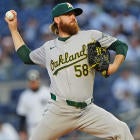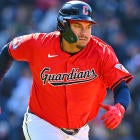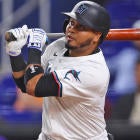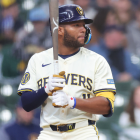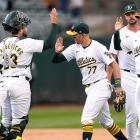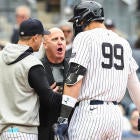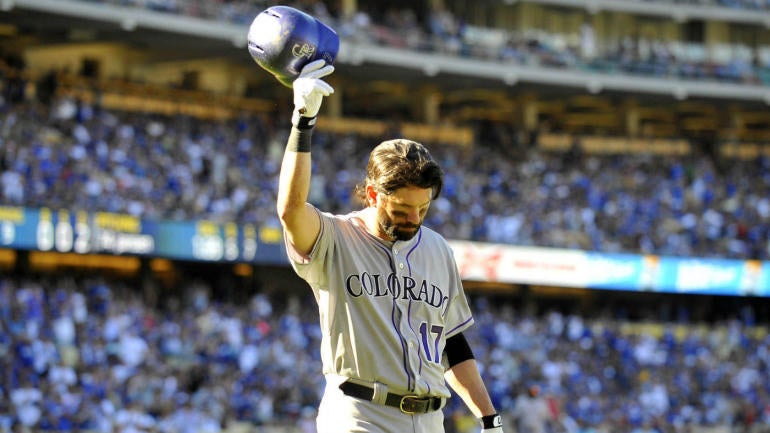
On Jan. 26, the results of the 2021 BBWAA Hall of Fame vote will be revealed on MLB Network. It's possible at least one former player will find out he's joining last year's class (Derek Jeter, Larry Walker, Ted Simmons and Marvin Miller) at the ceremony this summer in Cooperstown. If one or more player does finish above the 75 percent threshold needed on the ballots, former Rockies first baseman Todd Helton will not be there.
Helton is, however, gaining ground. He got 16.5 percent of the vote in 2019 and 29.2 percent last year. With the backlog clearing from the ballot, Helton will again increase his percentage this time around, perhaps significantly so. Ryan Thibodaux's ballot tracker shows Helton has appeared on 55.2 percent of the ballots made publicly available this time around with 24 votes having been gained among returning voters (that is, these voters did not vote for Helton last year but did this year).
Given that Helton will be on the ballot for 10 years, if he needs it, before falling off, everything appears to be proceeding toward Todd Helton being a Hall of Famer sometime in the future, perhaps the near future.
Should he get in? Let's take a look.
The case
Over the course of his 17-year career, Helton posted a most impressive .316/.414/.539 slash line. Among players with at least 6,000 career plate appearances (10 years is required to get into the Hall of Fame and 600 plate appearances is generally around a full season), there have only been 20 players to slash at least .300/.400/.500 (list here). The only ones not in the Hall of Fame are Manny Ramirez (two PED suspensions), Joey Votto (still active) and Helton.
The average is 65th all-time, OBP 27th, slugging 36th and OPS 18th. Yes, he has the 18th highest OPS in MLB history.
That's a pretty good starting point, no?
Helton racked up 2,519 hits and 1,335 walks in his career, good for 55th in history in times on base.
He ranks 19th in history with 592 doubles while adding 369 homers (81st), putting him 40th in career extra-base hits and 62nd in total bases.
He's also a touch over 1,400 runs and RBI each, one of 51 players in history to top that mark in both.
It seems pretty clear the counting and rate stats are there, even if he's missing the 3,000 hits or 500 home runs.
Helton led the league hitting once, OBP twice, slugging once, OPS once, total bases once, hits once, doubles once and RBI once. Most of the damage happened in 2000, when he topped out at fifth in NL MVP voting. He had two other top-10 MVP finishes while winning four Silver Sluggers and three Gold Gloves. He was a five-time All-Star.
The two most statistical similar players to Helton on baseball-reference.com are Jeff Bagwell and Edgar Martinez, both Hall of Famers. Vladimir Guerrero, Orlando Cepeda, Larry Walker, Jim Rice and Miguel Cabrera (he's a first-ballot Hall of Famer five years after he retires) are also in the top 10.
Given the counting and rate stats, this seems like a slam dunk case. So what gives?
Enough power at first base?
First -- and less importantly, as you'll see in a second -- Helton played a hit-first position during an era where power was off-the-charts ridiculous. That he didn't get to 500, or even 400, home runs and at least 1,500 RBI could be a knock on Helton for some voters and fans alike.
Also ...
The Coors Field stigma
Ah, yes. Helton spent his entire career playing for the Rockies, some of it pre-humidor. That means we have to take all his stats, both rate and counting, with a grain of salt and downgrade him a bit. That's been the conventional wisdom here for years, at least. Perhaps the Larry Walker induction last voting cycle showed voters are starting to get over it, but it's still there.
Adjusting for era and ballpark, OPS+ shows us we do need to move Helton a bit down. While we noted he was 18th all time in straight OPS, his 133 OPS+ ranks 141st in MLB history. Of course, it should be noted that Helton has a better career OPS+ than Hall of Fame first basemen Eddie Murray, George Sisler and Tony Perez while sitting tied with Cepeda.
WAR should adjust for ballpark as well. Helton sits 17th all-time among first basemen at 61.8 with the average Hall of Fame first baseman WAR being 66.9. Helton is ahead of Harmon Killebrew, Hank Greenberg, Bill Terry, Sisler, Perez and Cepeda there and doesn't trail anyone who definitely isn't Hall-worthy by numbers (Cabrera is 12th, Mark McGwire 15th and Votto 16th).
Helton's prime was Hall-worthy, per WAR. In his top-seven WAR seasons, he sits 11th all-time among first baseman, above the average Hall of Famer.
Factored together in JAWS, Helton is 15th, barely below the average Hall of Fame first baseman (list here), ahead of players like Murray, McGwire, Greenberg, Sisler, Terry and Killebrew.
The biggest drawback for many when it comes to numbers is probably this.
- Helton's career at home: .345/.441/.607
- Helton's career on road: .287/.386/.469
Think you can't find some Hall of Famers with such extreme splits? Think again.
- Jim Rice hit .320 with a .546 slugging at home as opposed to .277 and .459 away from Fenway Park.
- Roy Campanella hit .300 with a .942 OPS at home while hitting .254 with a .784 OPS on the road.
- Even with several different homes, Wade Boggs slashed .354/.443/.491 at home and .302/.387/.395 on the road in his career.
- Kirby Puckett hit .344 at home and .291 on the road with a .909 vs. .761 OPS difference.
- Hank Greenberg feasted in Tiger Stadium, hitting .338/.441/.681(!) at home compared to .289/.382/.529 on the road. His road OPS was 210 points lower than at home.
- Chuck Klein was a career .353 hitter at home while hitting .286 on the road. The OPS split? 1.027 vs. .813.
Should Helton be punished for being a much better hitter at home while these others weren't? Those are some pretty significant splits listed above.
Maybe Helton doesn't look like a Hall of Famer to you. That's fine. Every person who cares about the Baseball Hall of Fame is entitled to their opinion. I just hope we're judging the whole case with proper context instead of looking only at the raw rate stats, raw counting stats or totally dismissing the numbers based upon Coors Field. Take in the whole picture and then form your best opinion.
Mine? If Helton's still there in five years when I get my first ballot, he'll have my vote.














